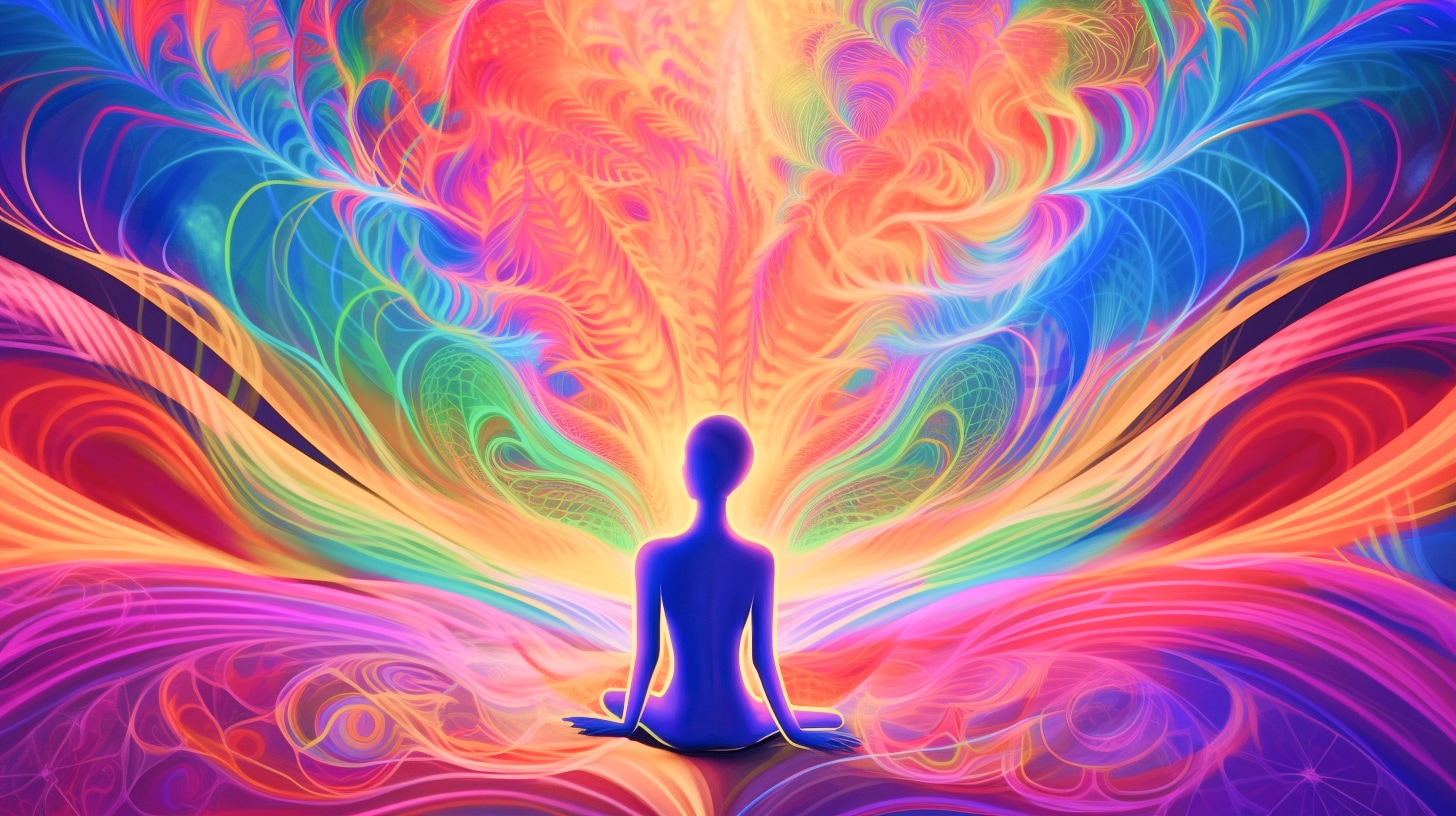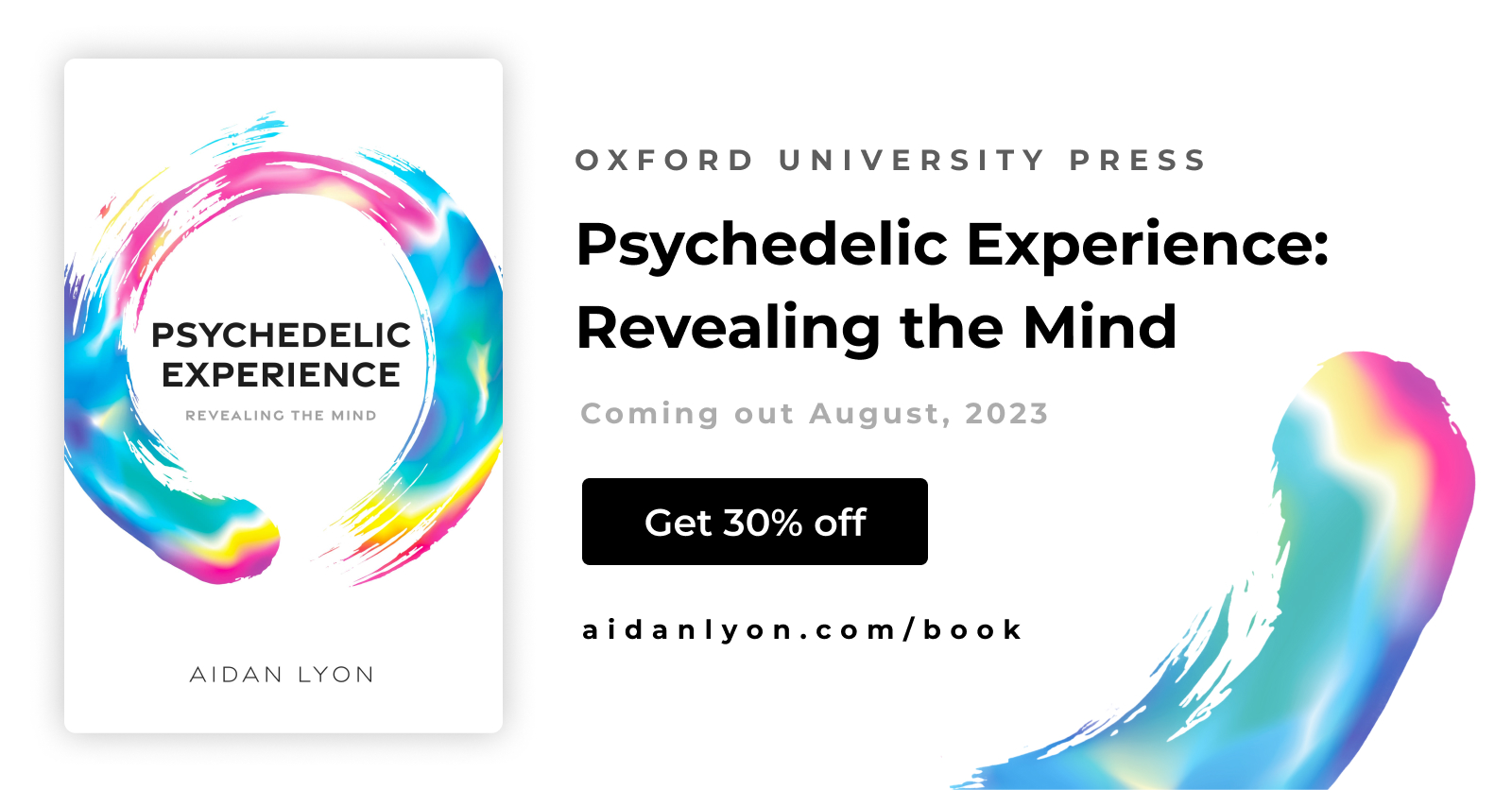Jul
2023
When the term 'psychedelic experience' comes to mind, most people envision mind-altering substances like LSD, psilocybin, and ayahuasca. Indeed, it is increasingly common to think that a psychedelic experience is an experience you have when you take a psychedelic drug. For example, the Wikipedia entry on 'psychedelic experience' gives a definition along these lines.
While these substances undoubtedly induce profound altered states of consciousness, the true essence of psychedelic experiences transcends such a narrow definition. In fact, these drugs got their name precisely because early researchers thought they reliably induce psychedelic experiences. So if we limit our understanding of psychedelic experiences to psychedelic substances, we can find ourselves in a definitional circle: a psychedelic experience is an experience you have when you take a psychedelic drug, and a psychedelic drug is a substance that reliably induces psychedelic experiences.
One way out of this circle is to just fix the reference of 'psychedelic'. There are different ways to do this. For example, one is to pick out the so-called "classic" psychedelics — psilocybin, LSD, mescaline, and ayahuasca — and then say that a substance is a psychedelic if it is sufficiently similar to these classics. But similar in what respects? Some scientists tend to focus on the pharmacological action of these drugs. For example, they say that any substance that is a serotonin (5-HT2A) agonist is a psychedelic.
There's nothing wrong with this per se. However, this reductionist or materialist way of thinking can be a bit narrow in vision. It takes emphasis away from human experiences and places it on physical objects (molecules, neurons, etc.) instead. This is a little odd since the term 'psychedelic' was first introduced by the psychiatrist Humphry Osmond, with the help of Aldous Huxley, to capture the nature of the experiences that these drugs induce.
In fact, in a letter he wrote to Huxley in 1957, Osmond was quite clear that he was thinking about a category of experience that was broader than those induced by drugs (especially serotonin agonists):
For Osmond and Huxley, a psychedelic experience wasn't necessarily an experience you have when you consume one of these substances. For them, it was a broader category of experience.
Another way to see this is by considering how they came up with the name 'psychedelic'. In another letter to Huxley, Osmond wrote:
Thus, we see that 'psychedelic' is a neologism comprised of the ancient Greek words psychē and dēlos and designed to convey the idea of the mind manifesting itself or being revealed.
The meaning of 'psychedelic' has since been distorted by many factors, including the counterculture movement of the 1960s, the war on drugs, and the dogma of scientific reductionism. However, many scientists and philosophers still recognise the term's original meaning and it is often treated as synonymous with 'mind-revelation'. On this way of thinking, a psychedelic experience is a mind-revealing experience.
Although this is a lot better than restricting our view to some class of substances defined by their pharmacological action, this understanding of 'psychedelic' is still too narrow. This is because mind is not the only translation of the term psychē. The correct translation is a matter of some debate, but other plausible candidates include soul and spirit. Thus, 'psychedelic' might reasonably be understood as soul-revealing or spirit-manifesting. That obviously takes us even further away from thinking exclusively in terms of serotonin-agonism.
Importantly, by taking a step back from psychedelic substances and focusing instead on psychedelic experiences, we open up the possibility that other kinds of intervention on the mind-body may be rightly called "psychedelic". For example, we see yogic practices mentioned in Osmond's long list of methods for inducing these experiences. One form of yogic practice is prānāyāma, which involves the control of prāna (or subtle energy) through various breathing practices. These breathing practices are psychedelic. Indeed, one such practice that has gained notoriety for inducing psychedelic experiences is Stanislav Grof's holotropic breathwork. The world of yoga offers many more such practices.
Another kind of practice that can induce psychedelic experiences is meditation. There are, of course, many kinds of meditative practices, and they each have distinctive effects on the mind. One popular class of practices are those of vipassanā, which roughly translates as "super seeing". Meditative practices of this form focus on cultivating mindfulness by deliberately bringing the mind's objects into awareness. Experiences during a vipassanā practice can start mildly psychedelic — with all sorts of emotions, memories, and insights making their way into consciousness. And, then, if the practice is continued for long enough — for example, during a vipassanā retreat — the experiences can become very psychedelic and not at all unlike the trip reports one finds on erowid.
So we have at least three ways one can have a psychedelic experience: consuming a psychedelic, practising prānāyāma, and practising meditation. There are actually many more, and they take all sorts of forms. For example, another way involves engaging with artwork so that one has an aesthetic experience. Many philosophers have argued that such an experience is about more than just the aesthetic object (e.g., a painting or a song) one is engaged with. Aesthetic experiences also free one's mind from its practical urgencies and everyday constraints, thereby allowing it to explore, play, reflect, and open up to profound truths that lay within, and throughout, one's psychē.
Indeed, not only are there different ways to have psychedelic experiences but they also can be combined in all sorts of interesting ways. For example, learning how to meditate can deepen one's aesthetic experiences, allowing them to become even more psychedelic. And, of course, there's a reason why "museum dosing" is a popular activity among psychonauts. It is also received wisdom within psychedelic research and therapy that the music played during sessions has a powerful effect on the therapeutic outcomes. Moreover, some research participants report that their aesthetic experience of the music does the healing work and the effect of the drug is simply to open up that phenomenological possibility.
So, rather than restricting our understanding of psychedelic experiences to psychedelic substances, we should broaden our view and start thinking about psychedelic
A psychedelic method is any intervention on the mind/body that reliably occasions psychedelic experiences. On this way of looking at things, it may be that for some people, taking a psychedelic drug is not the best way to have a psychedelic experience. They may be better off practising meditation or yoga, or going to an art gallery or a music festival.
In fact, it may be that the real value of psychedelic drugs isn't so much their ability to reveal the mind but rather their ability to reveal the possibility of revealing the mind. Therefore, the experiences we get from psychedelics might be better thought of as "proof of concept" experiences — of the psychedelic kind.
If so, then it may be that the really psychedelic experiences can be best had by other means.

